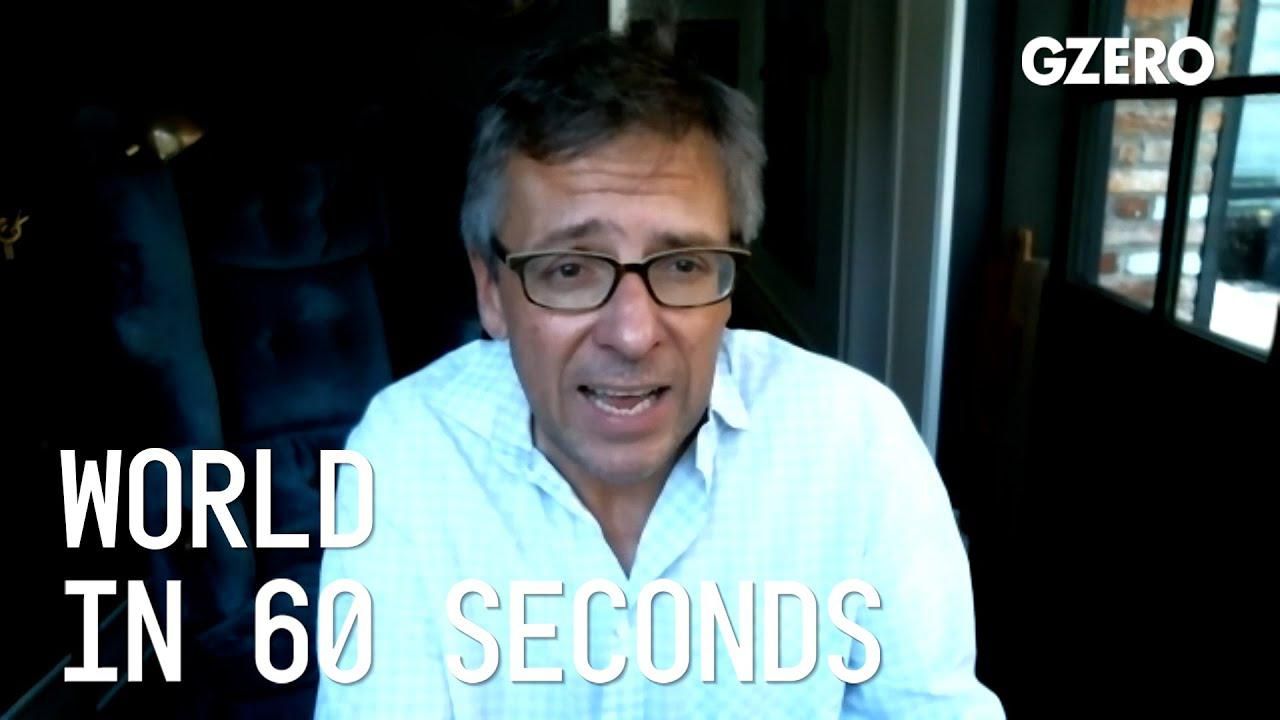ask ian
COVID vaccine mandates are coming; political instability in Tunisia

COVID Vaccine Mandates are Coming | Political Instability in Tunisia | World In :60s | GZERO Media

Ian Bremmer shares his perspective on global politics this week:
As COVID-19 cases rise, are vaccine mandates coming?
Oh, you just want to get me in more trouble. Yeah, some mandates are coming, but they're not national mandates in the United States. In some cases, you're looking at federal and state employees, in some cases you're looking at lots of individual corporations, universities, and such. I mean I've already been to a number of events where vaccines have been mandated in New York. You've got this Excelsior Pass if you want to go to the Brooklyn Nets games, as I certainly do. You show it off and that gets you in with your vaccine. So I think it's really going to be a decentralized process. But clearly, given Delta variant and the number of people that are getting sick and dying because they're not vaccinated, you're going to see moves towards more mandates, as a consequence.
What's happening in Tunisia and how will it affect the broader region?
Well, massive unlimited employment, lots of corruption from the government and also COVID on top of all of that. And just, remember this was the one country that kind of successfully had a transition during the Arab Spring and didn't revert to authoritarianism. But it's a weak constitution, there's lots of open contestations in terms of what some of these rules really mean, who has power, what the separation of powers look like. And what ended up occurring was the president sacked the prime minister and suspended parliament and used the military in so doing. And it's absolutely unclear he has a constitutional mandate to do so. A lot of people demonstrating saying, this is awesome. A lot of people demonstrating saying this is illegal and a coup. The United States in contact with the president and expressing both concern but also support in this early day. Economically these guys are in a lot of trouble and political stability kind of doesn't exist right now. So look, lots of countries around the world on the back of COVID going to experience much more political instability, Tunisia leading the pack in North Africa right now.
Are you watching the Olympics? What's your favorite event?
I've been watching a little bit of the Olympics, it is in Tokyo. I turned on the NBC coverage late evening the other day. Have to say my favorite event for Summer Olympics has to be the gymnastics. And it's really sad to see the United States unable to pull off the gold to the team that was formerly known as Russia, but has had their name suspended because of all of the doping. And very sad to see Simone Biles who is in a league of her own on planet have to pull out for medical reasons. But still I think the Olympics... I've always been a fan of the Olympics. I like anything that brings the world together and has us root for humanity. That's harder to find these days and any excuse we have, I'm all for it.
America’s new National Security Strategy confirms what Europeans have feared for months: Washington now sees a strong, unified European Union as a problem to be solved, not an ally to be supported.
In this episode of Tools and Weapons, Microsoft Vice Chair and President Brad Smith sits down with Ed Policy, President and CEO of the Green Bay Packers, to discuss how purpose-driven leadership and innovation are shaping the future of one of the world’s most iconic sports franchises. Ed shares how technology and community-focused initiatives, from Titletown Tech to health and safety innovations on the field, are transforming not just the game of football, but the economy and culture of Green Bay itself. He explains how combining strategic vision with investment in local startups is keeping talent in the Midwest and creating opportunities that extend far beyond Lambeau Field.
Subscribe and find new episodes monthly, wherever you listen to podcasts.
More than a week after Hondurans cast their ballots in a presidential election, the country is still stuck in a potentially-dangerous post-election fog.